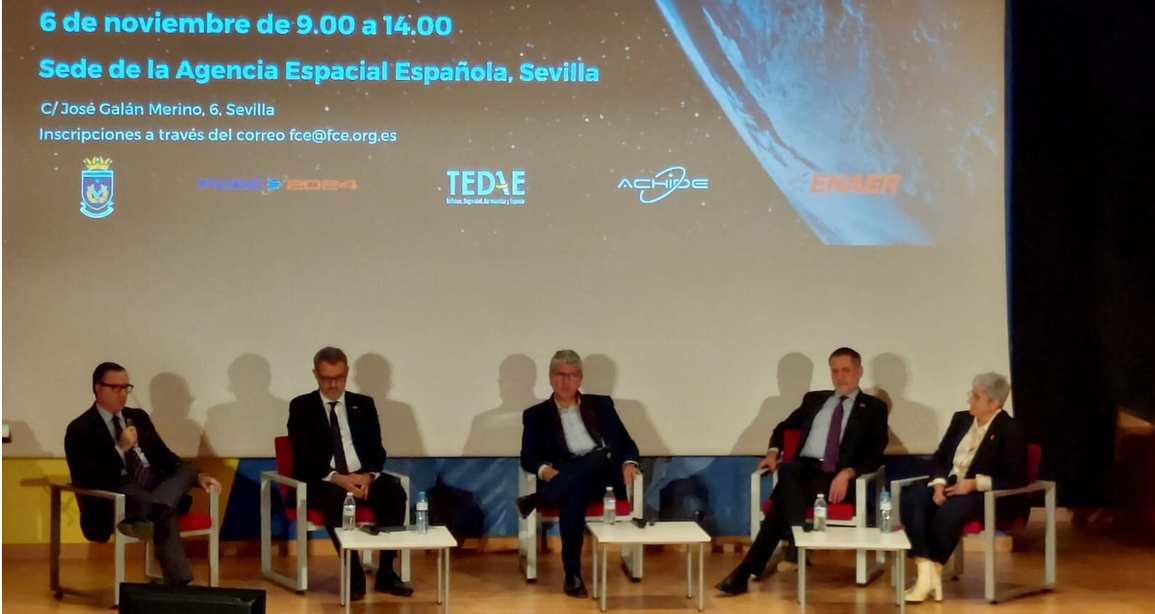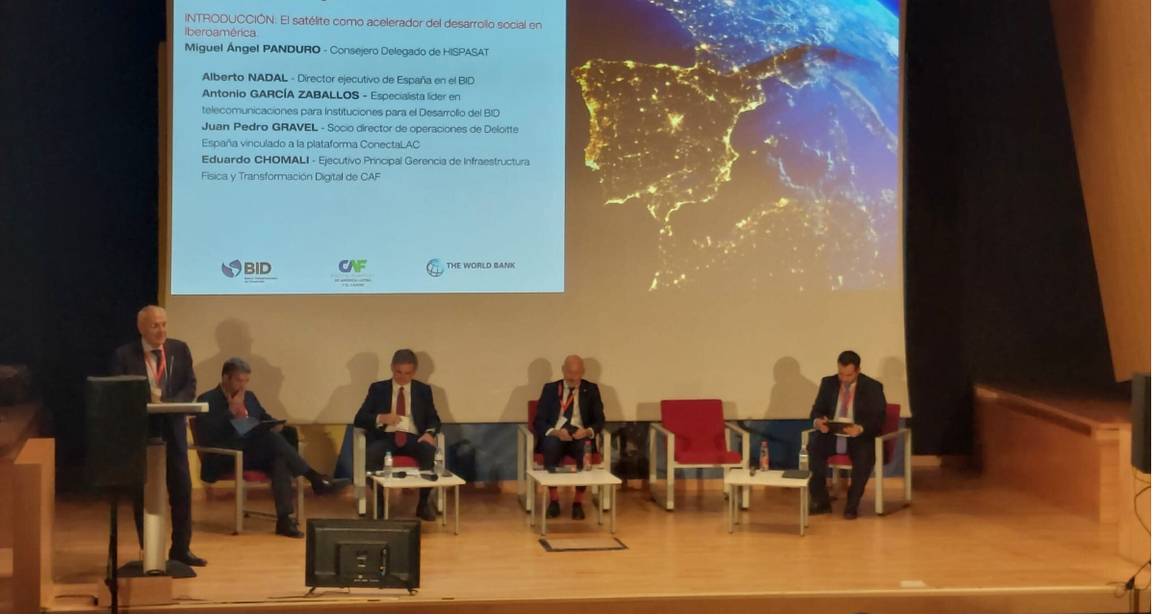
|
06 noviembre 2023
Antonio Abad, Technical Officer at Hispasat, has participated in the V Chile-Spain Aerospace Forum. In the debate on public-private collaboration, he explained that space is a natural area of international cooperation. Sharing what can be done in cooperation with other countries.
This need to share stems from the size of the investments required to build, launch and commercially operate a satellite. The question of coverage must also be considered. Satellites do not understand borders. In fact, we use them to connect people and in this sense, Hispasat was born as a domestic company and we immediately felt the need to build bridges between cultures and have done so since 2001.
All of this takes on special relevance because, as Antonio Abad explained, we live in a digital society and one of its pillars is connectivity. In this scenario, we could say that connectivity is like the electricity of the 21st century.
In this sense, the satellite plays an important role in connecting people. It is true that fiber and cellular technology are good solutions for connecting in large urban centers, but when the population is scattered, it is more difficult to use them because the cost of deployment is high. For this reason, for a population density below a certain level, the satellite plays a fundamental role.
In Europe, 98% of the population has connectivity, although this means that 2% of the population remains unconnected. In a digital society we cannot leave anyone behind because we are denying them access to remote education, telemedicine and, ultimately, digitalization.
At Hispasat we have a rural connectivity program. We are offering high-speed Internet for 35 Euros anywhere in Spain with the help of Next Generation funds.
However, a satellite is also important for the connectivity of things. This is a deeper problem because in Spain we have 70% territorial connectivity, which means that 30% of the territories are left out and can only be connected through satellite. We cannot allow territories to be left out of connectivity.
Mobility is also an issue. Everyone wants to be connected at all times everywhere, but they are also interested in being connected to those who are working on fishing vessels or on offshore platforms.
Nor should we forget the importance of the satellite in emergencies and public safety. It is a fact that when all communications infrastructures fail in natural disasters or humanitarian catastrophes, the only one capable of responding is satellite.
Finally, defense has become the fifth most important area of competence for armies, after land, sea and air, to which we have added space and outer space. Increasingly more space assets are safer and more protected.
To address these needs, we have two types of infrastructure. One consists of geostationary satellites, which allow us to use the capacity in a very efficient way. In this sense, he recalled that to provide capacity in a territory like Chile with a global system we have to provide 600 times the capacity that I want to offer.
As for constellations, he explained the European solution. A consortium of companies is working to create a constellation by adding governmental and commercial demand that will allow us to maintain technological excellence in Europe.
Without forgetting the projects related to the new services that humanity will demand, such as the new infrastructure that space exploration will require: lunar communications.
In addition to this, quantum communications must be considered, since photon transmission degrades very rapidly in fiber optics, yet can be favorably carried out in free space.
Finally, 5G must be mentioned, which will not only allow the massive use of certain components, but will facilitate the integration of satellites with terrestrial infrastructures and will additionally allow connection directly to the device, making the use of a specific terminal unnecessary. As he explains to us, this is the revolution.

07 noviembre 2023
When we talk about social development we talk about improving the living conditions of citizens and countries. We are referring to access to education, healthcare and all the possibilities provided by the digital economy of the 21st century. In the words of Alberto Nadal, executive director of Spain at the Inter-American Development Bank, "the importance of connectivity is like that of roads in the past."